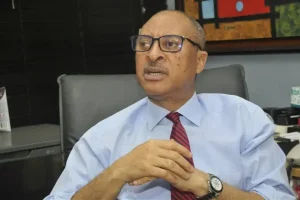
Timothy Mgbere, Secretary of the Alesa Community Stakeholders, has raised serious concerns regarding the recently resumed operations at the Port Harcourt Refinery, which has been rehabilitated by the Nigerian National Petroleum Company Limited (NNPCL).
Mgbere accused the company of deceiving the public about the true state of the refinery’s operations. He claimed that the petroleum products recently dispatched from the refinery were not newly refined, but instead old stock that had been stored in the facility’s tanks for the past three years.
Speaking during an appearance on Arise TV, Mgbere, who is a key figure in the community where the refinery is located, expressed disappointment over the disparity between the official reports and the reality of the refinery’s operations. He noted that although the Nigerian National Petroleum Company Limited (NNPCL) had announced that the refinery was now producing at 70% of its capacity, the actual output was far from what had been promised.
According to NNPCL, the newly rehabilitated Port Harcourt Refinery, which has been upgraded with modern technology, was expected to process 60,000 barrels of oil per day and produce significant amounts of key petroleum products, including 1.4 million liters of Premium Motor Spirit (PMS), 1.5 million liters of diesel, 2.1 million liters of low-pour fuel oil, and other products. The company also stated that it planned to dispatch 200 trucks of petrol into the market every day, a significant increase over previous outputs. However, Mgbere contradicted these claims, pointing out that only six trucks were dispatched on the day the refinery resumed operations.
He described the refinery’s reopening as “nothing more than a show” and claimed that the ceremony did not reflect the true state of the refinery’s operations. Mgbere explained that while some parts of the refinery had been activated, not all units were functional, and only a small portion of the old facility had resumed partial operations. “Some units were brought back into operation, but the entire refinery is far from fully functional,” he stated. “It’s important to clarify that the refinery is operating on a skeletal level, not to the extent that the NNPCL would like Nigerians to believe.”
One of the key points Mgbere highlighted was the claim by NNPCL that the refinery was producing large amounts of petrol and other products. He dismissed the claim of 1.4 million liters of petrol production per day as inaccurate, calling it a misrepresentation of the refinery’s true output. “What we had on Tuesday was not new production,” Mgbere stated. “The NNPC only released old stock that had been sitting in the refinery’s tanks for over three years. These stocks were loaded into six trucks and then presented to the public as if they were new products from the rehabilitated refinery.”
Mgbere also criticized the way the event surrounding the refinery’s reopening was handled, describing it as a public relations stunt aimed at creating a positive image for the refinery’s operations. He pointed out that the ceremony was held at the new loading gantry connected to the new refinery, not the old complex that had just been reactivated. “The whole event was staged to make it look like the refinery was operating at full capacity,” he said. “The reality on the ground is far different from the image the NNPC is trying to portray.”
He emphasized that the refinery’s true output was not being reflected in the media reports. The six trucks that were dispatched were only loaded with the old stock, and the refinery’s full operational capacity had not yet been reached. “NNPC needs to stop telling Nigerians that everything is fine when, in fact, there is still a long way to go before the refinery can operate at its full capacity,” Mgbere warned. “It’s misleading and unfair to the Nigerian people, who deserve transparency and honesty about the state of the country’s oil sector.”
Mgbere’s comments highlight growing skepticism among members of the Alesa community and other local stakeholders, who rely on the Port Harcourt Refinery for their livelihood. His concerns echo broader calls for greater transparency and accountability in the management of Nigeria’s petroleum industry, especially regarding the rehabilitation and operation of key infrastructure like the Port Harcourt Refinery. The Alesa community, which plays a central role in the economy of Rivers State, has expressed frustration over the lack of progress in the refinery’s revitalization, even as government officials and NNPCL continue to make optimistic claims.
The ongoing situation at the Port Harcourt Refinery has drawn attention to the broader challenges facing Nigeria’s oil sector, which has struggled with inefficiencies, corruption, and lack of investment for decades. Mgbere’s remarks serve as a reminder that local communities and stakeholders should be included in discussions about the refinery’s future, and that any claims about its operations should be closely scrutinized to ensure that they align with reality.
The issues raised by Mgbere also underscore the importance of managing public expectations and providing accurate information about the rehabilitation and operation of critical national infrastructure. As Nigeria continues to grapple with its energy challenges, the need for transparency, effective management, and accountability in the oil and gas sector has never been more urgent.





